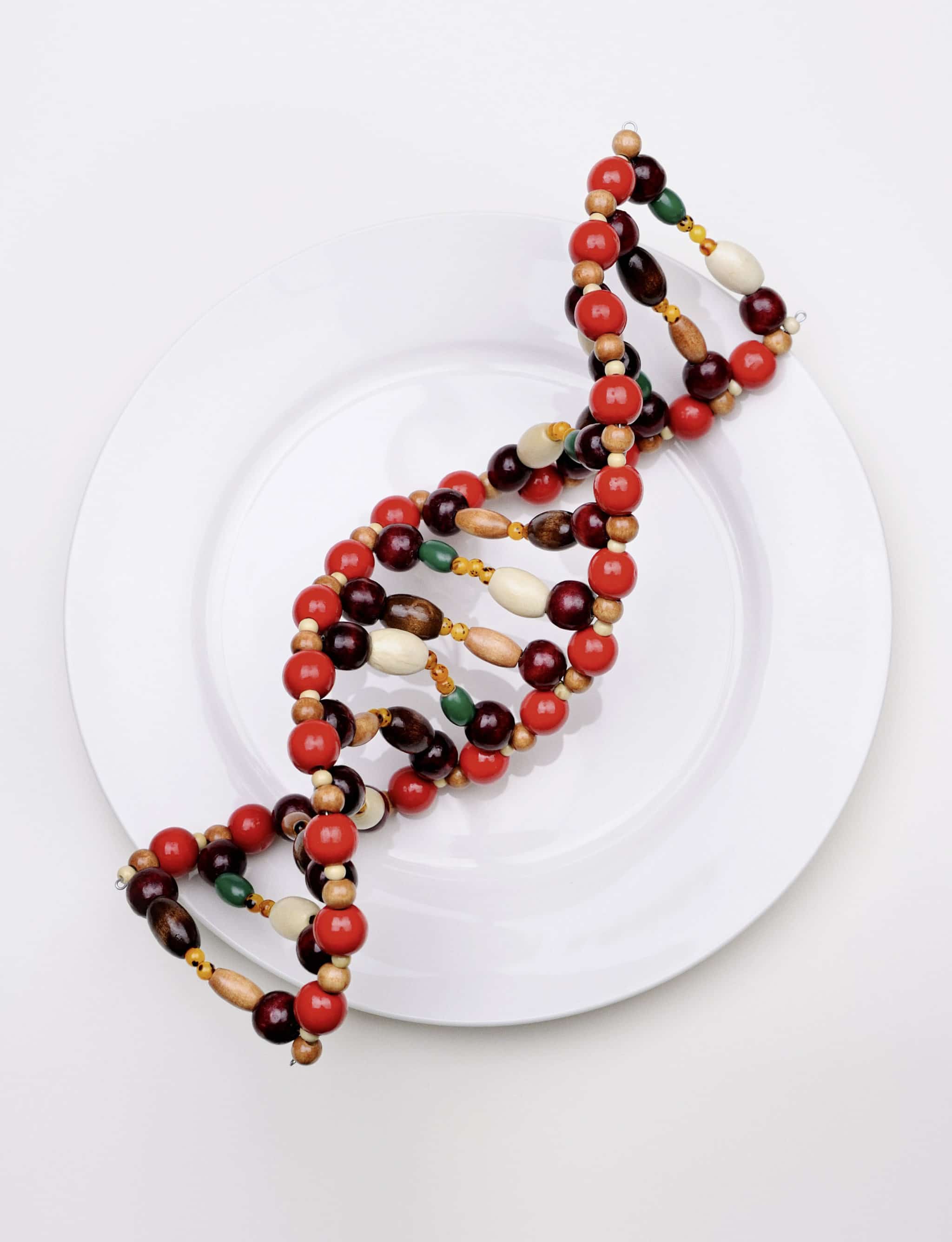Nutrigenomics, The Future is now!

While our lifestyles and food (along with its industrialization) have developed drastically over the centuries, the human genome has remained virtually unchanged. It’s still geared towards “saving”, a characteristic that was useful to our ancestors, whose bodies needed to store as much energy as possible, but is now profoundly out of step with our modern diets and increasing sedentary lifestyles. The main consequence of this is a deregula-tion that can lead to obesity and associated pathologies (hypertension, type 2 diabetes, cardiovascular diseases, etc.). Preventing illness through personalized nutrition is therefore an increasingly topical issue.
What we eat influences our genes
Nutrigenomics is a nutritional science that uses genetic technology to study the interactions between nutrients and the genes responsible for metabolic balance. “For example, certain components – fatty acids, vitamins, trace elements – exert direct control over gene expression without altering gene structure. Other ingredients (folate, choline, vitamins B12 B2 and B6) can induce epigenetic modifications that, although generally reversible, are sometimes stable enough to be passed from one generation to the next. We also know that certain trace elements, such as selenium, improve the fidelity of DNA replication and resistance to oxidative stress.” *This scientific research is essential for our future. Its development will make nutrition a powerful health tool, enabling us to put together bespoke dietary recommendations.
Bearing in mind the enormous complexity of contemporary food, it will provide substantial keys for preventive medicine based on ultra-personalized nutrition that takes into account the individual regulatory capacity of the human genome and could influence its genetic heritage. It will also enable us to engage in effective therapeutic action, combining nutrigenomics with drug-based medicine.
In addition to the obvious health benefits, the contributions of this exciting new science could make a major impact in economic and social terms. They introduce the potential to design more effective diets for malnourished or aging populations, along with cooperation in the field of pharmacogenomics, enabling drugs to be better matched with dietary nutrients. They should also make it easier for new generations of safe products to be introduced to the agri-food market, often in the form of combinations of ingredients designed to optimize certain functions, whether in humans, animals or plants. Based on a holistic approach, nutrigenomics is a true revolution, bringing together nutrition, medicine, biology, ethics, human science and the food industry and making them catalysts for scientific and social innovation. This will undoubtedly increase individual awareness of the evolution of food-related behaviors.
* “Nutrigenomics, the new health ally. Walter Wahli, Nathalie Constantin, Forum Med Suisse, 2009, 9(11):224-227”
 CART (0)
CART (0)